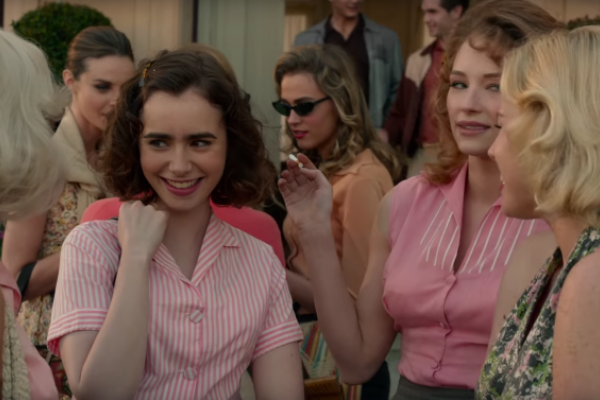WARREN BEATTY is an actor who truly deserves to be called a filmmaker. He produced many of his films, and the five that he also co-wrote and/or directed are classics that reimagine their genres.
Heaven Can Wait exchanges predictable alpha masculinity for subtle expressions of the need for companionship; Dick Tracy is the most exquisitely designed comic book movie ever made, with Stephen Sondheim songs to boot; and Bulworth is a wildly entertaining political satire (a big Hollywood comedy with a Greek chorus played by the political activist poet Amiri Baraka!) that in a parallel universe might have been co-written by Howard Zinn and Michelle Alexander.
Meanwhile, Reds is an out-and-out masterpiece—a romantic epic about the rise of communism in the U.S. with a convincing central love affair and dramatization of what building a social movement is actually like.
His latest, Rules Don’t Apply, appearing after his 15-year screen absence, is original, even magical entertainment. Lily Collins and Alden Ehrenreich perfectly play employees of the reclusive entrepreneur Howard Hughes who fall in love in 1958, despite the “rules” that say they shouldn’t. The actress and chauffeur must choose between the money, position, and power offered by Hughes or their forbidden love. Playing Hughes, Beatty invests him with a kind of vulnerability rare in portrayals of easily caricatured famous people. The psychological complexity that overcame Hughes is handled with sensitivity, and Beatty never lets the performance turn into attention-seeking awards bait or a joke at the expense of a powerful person. Our empathy with some of Hughes’ character doesn’t erase the part that invites critique: His greed, control issues, and manipulations are here too.
But the film is really about the constrictive rules that affect us all and how to discern those that make sense and are life-giving. Rules Don’t Apply is a kind of serenity prayer for people caught between twin American obsessions: God grant me the courage to transcend harmful religious puritanism and individualistic expansionism both.
With it, Beatty has made another genre-transcender: a compelling drama, with delicious light touches, that stirs the heart too. This film believes in the mysteries of love and the necessity of forgiveness. Released after such a divisive election, it’s also a gift from one of the most important U.S. filmmakers: an invitation to reimagine the rules we live by, especially those that keep us apart.
Read the Full Article

